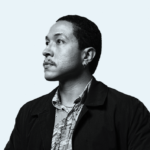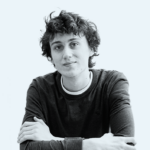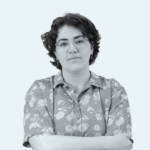Text: Vincent Oostvogels
I only realized how tremendous David Attenborough’s reputation is when I came to Wageningen to do a degree in Biology. My fellow students knew his entire oeuvre, in class it rained references to his films, and the student association frequently photoshopped him on its posters. But I had only seen a couple of his series, so I decided to catch up. I was soon enchanted by all that footage of the most exotic nature. Yes, this was the biology I wanted to learn about!
Attenborough’s latest film came out in September: A Life on Our Planet. Once again, everyone was talking about it, and once again, I thought I ought to see it too. So I activated my Netflix account for a month just for Attenborough.
The film shows the incredible loss of nature that has taken place during his lifetime. Attenborough also presents his vision for the future: letting the world become a wilderness again. He supports his message with fantastic footage of the Serengeti, which he proclaims an example of wild Africa. I would love to believe it all. But it just doesn’t help that I have learned that the African savanna has a millennium of history of human use and that the idea of an unspoiled wilderness untouched by human activity is a carefully created myth.
A few minutes later we see some old footage of Attenborough with a tribe that had had no previous contact with the outside world. Hunter-gatherers, somewhere in the rainforest in New Guinea. Attenborough’s message: people like these do still live in harmony with nature. I cover my eyes, because I recognize another myth: that of the ‘ecological noble savage’. People who live close to nature are just as capable of exhausting natural resources.
I recognize another myth: that of the ecological noble savage
As I ponder the picture Attenborough paints of the place of humans in relation to nature, I suddenly realize something. When I first came to Wageningen, ignorant as I was, I could still just enjoy Attenborough’s films. Seven years later, that’s been somewhat ruined and it’s the debatable aspects of his message that jump out at me.
Vincent Oostvogels (25) is in the first year of a PhD on biodiversity recovery in dairy farming. His dream is to be able to keep a few cows of his own one day.




